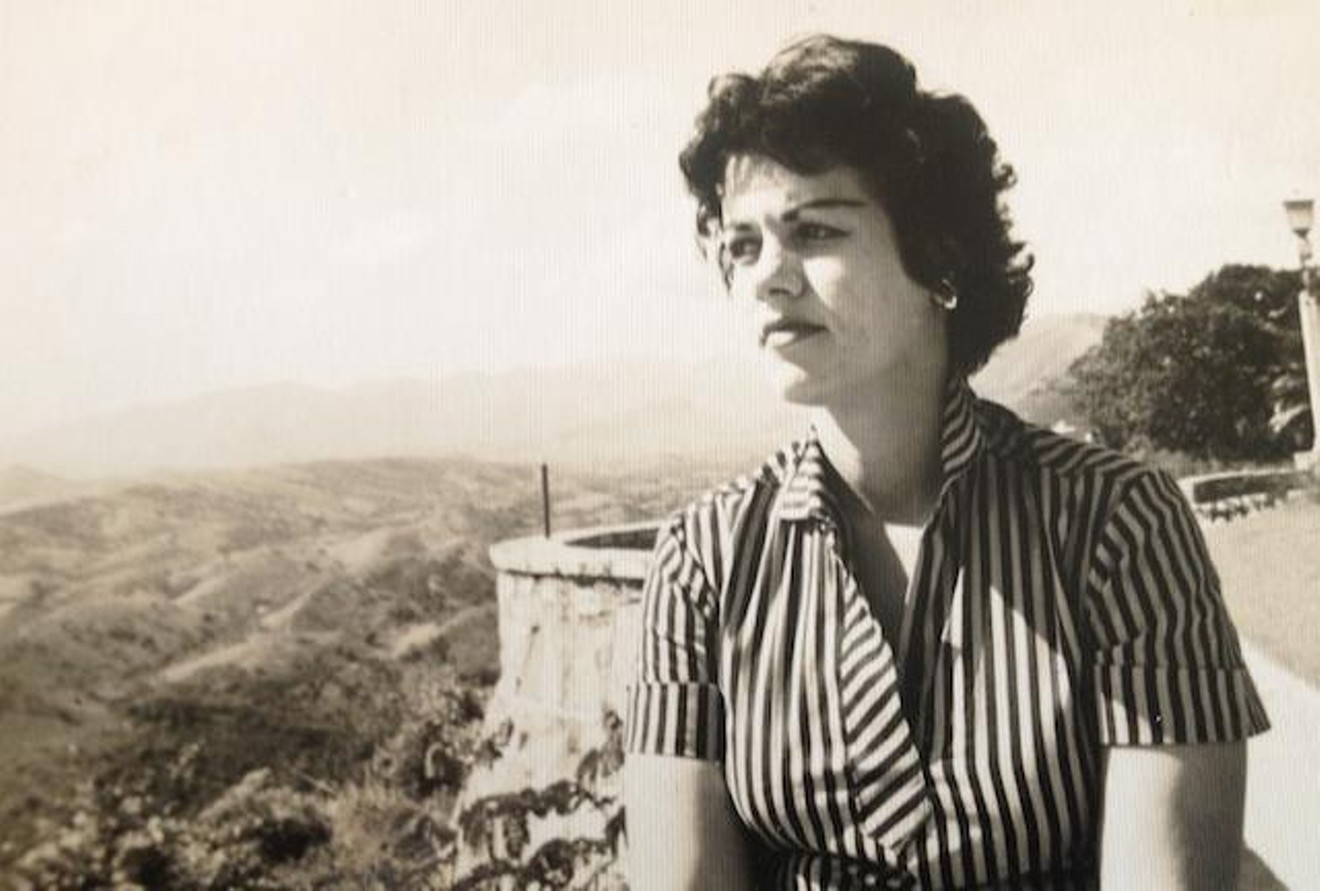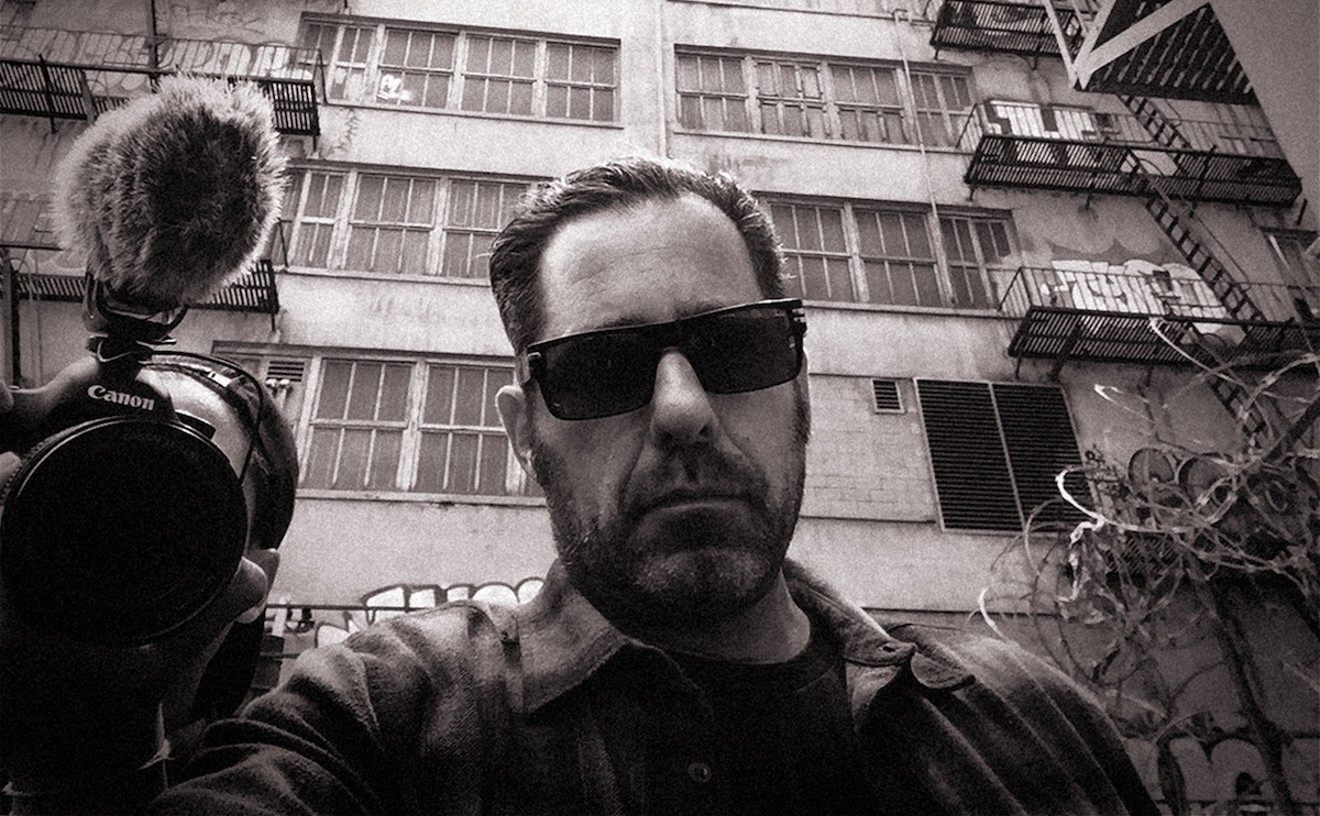Before I left Miami, I grabbed a bottle of Violetas Rusas and packed it in the one suitcase I carried.
“Russian Violets” cologne smells like my childhood.
When I was growing up in Miami, my mother brushed my long brown hair in a daily ritual that seemed to last an eternity. She stood tall behind me as I sat still on a stool facing the vanity. Only her arms moved in the soft light cast from the window. Mother and daughter looked at each other in the mirror, me staring into the future and her into the past. She told me stories about Cuba, her childhood home in Camagüey, and her seaside adventures. The cadence of her words lulled me into a reverie as the gentle, rhythmic strokes of the brush caressed my scalp. A splash of cologne snapped me out of it; cold, fragrant drops sealed the bond between storyteller and child.
Had I really heard her words, though? Sometimes I got lost in her nostalgia.
My mother told me many stories, but she never told me I’d be writing about her two years after her death, that I'd be sitting near a forest in North Carolina, delirious from birdsong at sunrise, and that her voice would somehow be part of it all, hundreds of miles away from my birthplace and even farther from the island she had once called home.
I've left Miami for good. And as my mother knew all too well after exile, home is where the heart is, and heart is where the words are — and that can be anywhere.
The last Mother’s Day before she died, she was already ravaged by Alzheimer's, lying in a hospital bed at home. She was barely conscious as I gently hovered my hands above her body, silently encouraging her soul to suffer no longer. I whispered, "I love you," but I don't know if she heard me.
Before her body bent over into the final phase of decline, I fed her, spoonful by spoonful. I changed her diapers. I brushed her wispy hair with the same rhythmic strokes she had brushed mine. But there was only silence. Grief sequestered my words.
I longed for her words then, those seemingly endless yarns about Cuba.
My mother passed away later that summer while my father was still under my care. I held onto her ashes so that someday I could combine them with his. My mother had been married to my father for more than 50 years. They had traveled to Varadero Beach on a Harley-Davidson for their honeymoon just before the Cuban revolution, when I was nothing but a dream. I had hoped to disperse their ashes on the shores of the Cuba they so dearly loved.
But last year, around this time, my heart told me it was time to set her free, even if my father — strong-willed, stubborn old Cuban guy that he was — wasn't ready to meet her. And I wasn't ready, nor did I care, to meet Cuba.
I decided to surrender her ashes to the sea in Miami. The ocean, removed from politics, knows no boundaries.
I had always chided my mother for hoarding, but I knew she had left Cuba with only the clothes on her back. After she died, sorting through her stuff was even more painful than losing her to old age. But it's as if she knew I would find a dress she had worn in the '70s that would mean the world to me, that would fit me perfectly. It had made many journeys in many moving boxes, waiting patiently for my body to give it new meaning.
The tide, breeze, and sun conspired to make that Mother's Day a gloriously beautiful one on the shores of Biscayne Bay. Wearing her dress, I stepped barefoot into the shallows and gently cradled her remains in my hands, which swirled in the clear, warm water. The lighter parts flowed with the tide toward the ocean in a milky trail. The heavier particles sank. A majestic blue heron stood still and bore solemn witness to the moment.
I heard a giggle from a distant shore decades away, a child frolicking on the beach. I saw the Virgen de la Caridad carry her in a loving embrace toward bliss while Yemayá sang her a lullaby in the rhythm of the lapping waves. Stella Maris, the star of the ocean, was her guide back to eternity. Dar a luz: She gave birth to me, brought me to light. I returned her to the light. And in spite of my earthly sorrow, my spirit soared along with hers.
The heron flapped its wings, and I returned to the present. I had been there an hour.
It wasn’t until I held my mother’s ashes in my hands that I understood the unfathomable and undying bond between us, and my destiny to become a mother to my mother instead of a mother to a child.
My mother told me many stories, except this one. Nobody can tell the story of their own death. Someday, I too shall fade from flesh, and there’ll be no child to tell mine.
I don’t worry about that, because in the end — after the hoarding of things you can't take with you, after the life, the laughs, the fights, the memories, the stories, the pain — after all of that, what remains is an immeasurable love I can’t even begin to stuff into a suitcase. How can something so big be so light and free?
Earlier this year, I returned to the same watery burial ground and let my dad go too. They swim together in freedom now, in beaches beyond history. And I travel light, with only a few little precious things: a couple of ounces of the ashes belonging to the lovers who made me, a bottle of Violetas Rusas, my dad's Harley spirit, and a whole bunch of words my mom left in my heart.
[
{
"name": "Air - MediumRectangle - Inline Content - Mobile Display Size",
"component": "19274298",
"insertPoint": "2",
"requiredCountToDisplay": "2"
},{
"name": "Editor Picks",
"component": "17482312",
"insertPoint": "4",
"requiredCountToDisplay": "1"
},{
"name": "Inline Links",
"component": "18711090",
"insertPoint": "8th",
"startingPoint": 8,
"requiredCountToDisplay": "7",
"maxInsertions": 25
},{
"name": "Air - MediumRectangle - Combo - Inline Content",
"component": "17482310",
"insertPoint": "8th",
"startingPoint": 8,
"requiredCountToDisplay": "7",
"maxInsertions": 25
},{
"name": "Inline Links",
"component": "18711090",
"insertPoint": "8th",
"startingPoint": 12,
"requiredCountToDisplay": "11",
"maxInsertions": 25
},{
"name": "Air - Leaderboard Tower - Combo - Inline Content",
"component": "17482313",
"insertPoint": "8th",
"startingPoint": 12,
"requiredCountToDisplay": "11",
"maxInsertions": 25
}
]












